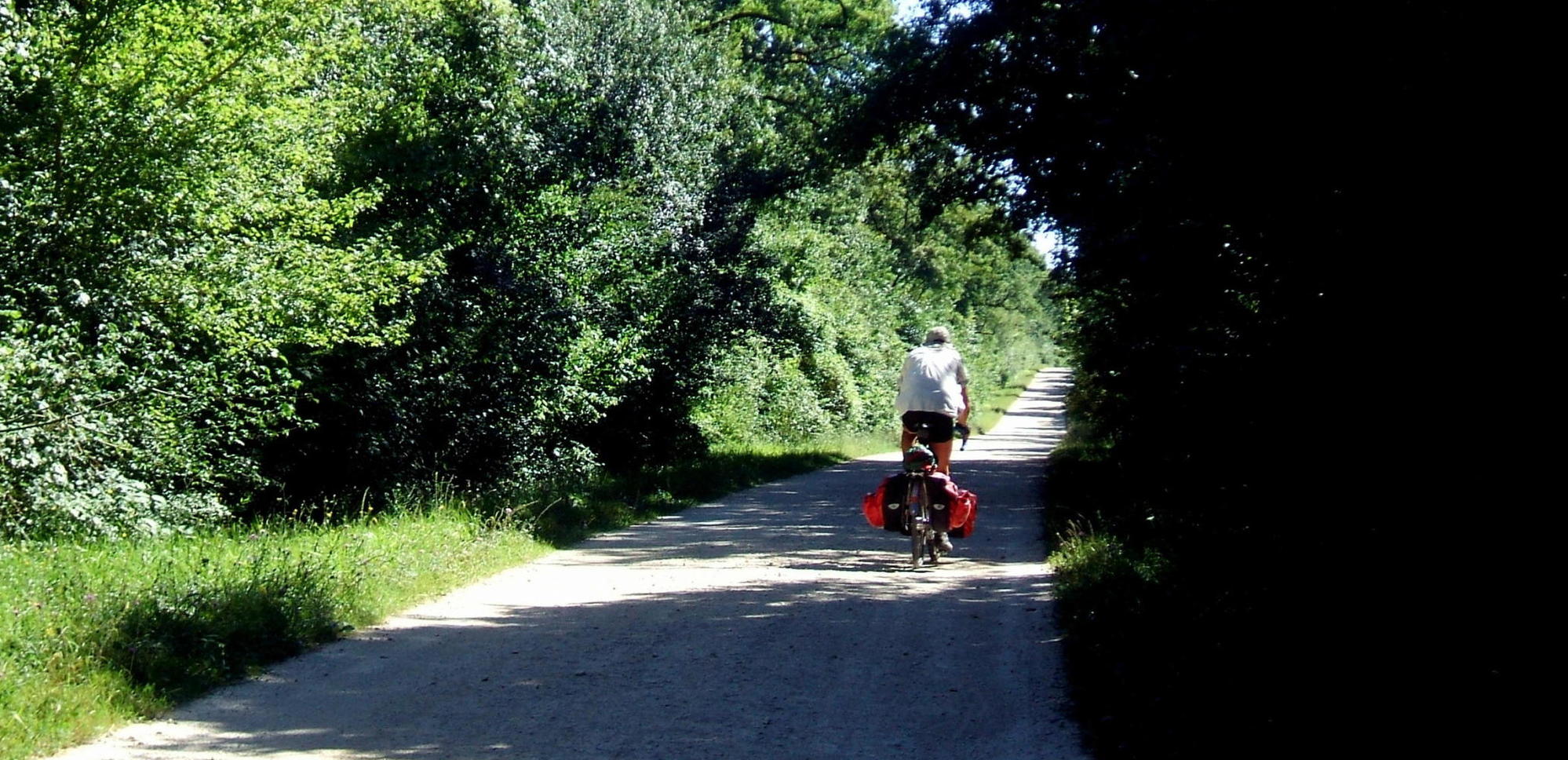August 11, 2013
A curse on barking dogs: Parthenay - Seche-Boue
THERE'S NO POINT in looking for Sèche-Boue on a map. It won't be there. I suspect even the people who live there don't know it's there. And, if they do, they're probably embarrassed to live in a place that means Dry Mud.
How does a place get to be called Dry Mud? What does it say of the mud in all the other places in the area?

| Heart | 0 | Comment | 0 | Link |
We are well towards the south now, not in the Massif Central by any means but in the testing hills that run west from the mountains almost to the Atlantic. We have been going up and we have been going down but we have been doing little in between.
We have been through villages with stone walls and sleeping cats but little else. And then we got to St-Maixent-l'École, which boasts to all who approach that it has France's National Museum of Sergeant-Majors.
Now that, if nothing else, is remarkable, like a hall of fame for short basketball players.
This is an army town. They do indeed train sergeant-majors here and they take them seriously. Right in the middle of town is a great victory arch which, I confess, we stopped to look at no more than we looked at the National Museum of Sergeant-Majors.
But you should never judge anything by its wrapping. The streets beyond the arch were pleasant enough but, even on a Sunday when most shops are closed anyway, there was an extra patina of decay. Shops and other businesses weren't simply shut for the day: they were shut for good.
Cobwebs hadn't yet settled but it had the air of towns I've seen in America, where a bypass or a Wal-Mart has come to the edge of town and sucked all life from the centuries of tradition elsewhere. And I think that's what happened here as well. I didn't see it but Steph spotted a sign for a commercial centre somewhere - a euphemism for a load of shops under a single roof or grouped inorganically round a new roundabout.
We found the one place in town that could sell us a café. It was a Turkish restaurant, a plush place with red upholstery on chairs and the sort of artefacts you'd expect. And good coffee.
If you come to St-Maixent determined to be disappointed then you'll go away happy.
On the way out, winding through small streets and then down a hill, we passed two families walking the other way. The youngest were around 30, the oldest in their 60s. They spoke English and assumed that we didn't.
"Y'see a lot of cyclists round here, don't you?", one of the younger women said in a broad, flat accent of the Yorkshire moors. They stopped and stared as we crossed them, doubtless thinking that if we couldn't understand them then we couldn't see them either.
So we started looking for these other cyclists. But we never found them. I don't remember we saw another cyclist all day long. Maybe it was because the roads here are invisibly bumpy, as though the tar was spread over old cobbles. Perhaps it was.
The curious thing is that a stony and rutted trail up through a wood was a relief. We could see the bumps. They didn't jump out of the asphalt darkness and snap invisibly at our wheels before sneaking away still unseen. The map showed it as a route forestière, the sort of road you look forward to when the alternative is worse but where, nevertheless, you never know what you're going to get.
And what we got was a slithering, slippery but enjoyable slither, skipping round stones, sliding into patches of loose sand. It was delightful and better than the invisible pave of the more respectable roads. But you do need a proper touring bike to ride it.
The villages now became dead, neither shops nor schools. It was one of those days to feel smug that you stopped early on to stock up on food. So all we needed now was water and somewhere to camp. And we got the first from a tap beside a swimming pool, up a steep slope in a village, where fat people were frolicking in the sun and not expecting a Lycra invasion.
The lesser of the fat men gestured us to a tap on a barn. We took out our bottles and thanked him. Inside or near the barn were perhaps eight thousand dogs. Invisible but put out now by our presence, and showing it. It didn't seem much at the time, not beyond wondering once more how people can live with that noise. But it did matter later.
All of 10 minutes beyond Sèche-Boue we saw a grassy track leading to the right, to a ragged stand of old and stately trees. We went through the usual routine, looking around, walking down the trail, looking like Boy Scouts for signs of recent movement (broken twigs, soft tractor ridges, bent grass), then stopped.
Stopping is part of it. If you've been seen, it gives a moment for someone to investigate. Nobody ever does if you do it well but it costs just a minute and the reassurance is worth it.
We found a place for the tent quickly. Then we found somewhere even better, in a meadow the size of a football field with just one entrance, a gap in the trees and bushes. The grass was long, soft and grasshopper. It was bedded with clover, a true five-star wild camping spot.
Everything was perfect. All we needed was those dogs back at the swimming pool to stop barking.
| Rate this entry's writing | Heart | 1 |
| Comment on this entry | Comment | 0 |